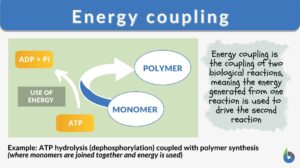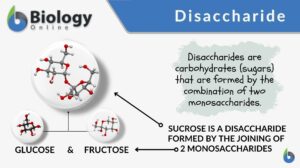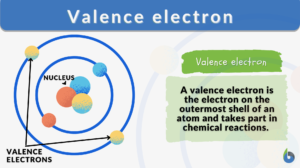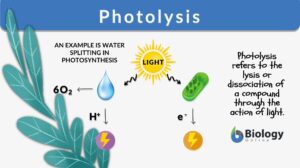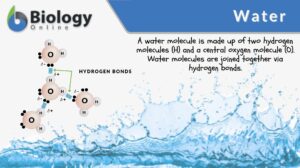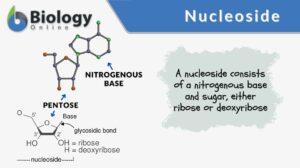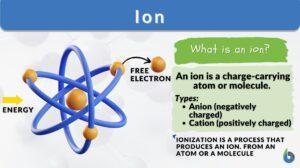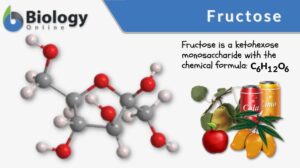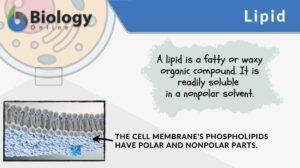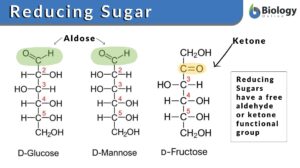Search Results for: high energy bond
Energy coupling
What is Energy Coupling? Work, whether it be physical or biological, requires energy to be expended. In biological... Read More
Hydrogen bond
Definition noun plural: hydrogen bonds A type of chemical bond that is formed when the slightly positive hydrogen atom of... Read More
Light-dependent reaction
Many organisms, such as green plants, convert light energy into chemical energy through the mechanism of photosynthesis. In... Read More
Cellular respiration
Cellular Respiration Definition What is cellular respiration in simple terms? Cellular respiration can be defined simply as... Read More
Dehydration reaction
What is dehydration synthesis? A dehydration reaction is a form of biochemical reaction wherein a water molecule is lost or... Read More
High Energy Bond
A type of bond in a molecule that is in a high energy state, such as atp compared to adp, atp has much more energy... Read More
Photosynthesis
Photosynthesis is a physio-chemical process carried out by photo-auto-lithotrophs by converting light energy into chemical... Read More
Chemical Composition of the Body
In order to fully understand the mechanisms of human physiology, it is important to have an understanding of the chemical... Read More
Disaccharide
Carbohydrates are organic compounds comprised of carbon, hydrogen, and oxygen, usually in the ratio of 1:2:1. They are one... Read More
Valence electron
What are valence electrons? Why are they significant? Valence electrons definition in chemistry: The electrons in an atom's... Read More
Photolysis
Photolysis Definition We define photolysis as a chemical process in which chemical compounds or molecules are split into... Read More
Chemiosmosis
Chemiosmosis Definition What is chemiosmosis? In biology, chemiosmosis refers to the process of moving ions (e.g. protons)... Read More
Isomaltose
Definition noun plural: isomaltoses i·so·mal·tose, aɪsoʊˈmɔːltəʊz A disaccharide formed from the combination of... Read More
Nucleoside
Nucleoside Definition A nucleoside is a nitrogenous base (purine or pyrimidine) bound to a pentose sugar ribose or... Read More
Monosaccharide
Monosaccharide Definition In biology and biochemistry, a monosaccharide is a simple sugar that constitutes the building... Read More
Eubacteria
Eubacteria are prokaryotic microorganisms consisting of a single cell lacking a nucleus and containing DNA is a single... Read More
Cell membrane
Cell Membrane Definition Just like any non-living body possesses a plastic or paper packaging material that keeps the... Read More
Reducing sugar
Reducing Sugar Definition What is reducing sugar? The type of sugar that acts as the reducing agent and can effectively... Read More
Erythrocyte
Erythrocyte Definition Erythrocytes (red blood cells or RBCs) are the myeloid series of specialized cells that play an... Read More
Fructooligosaccharide
Definition noun plural: fructooligosaccharides fruc·to·ol·i·go·sac·cha·ride, ɪhɡəʊˈsækəɹaɪd An... Read More
Uridine triphosphate
Definition noun plural: uridine triphosphates (biochemistry) A nucleotide composed of uracil, ribose and three phosphate... Read More
